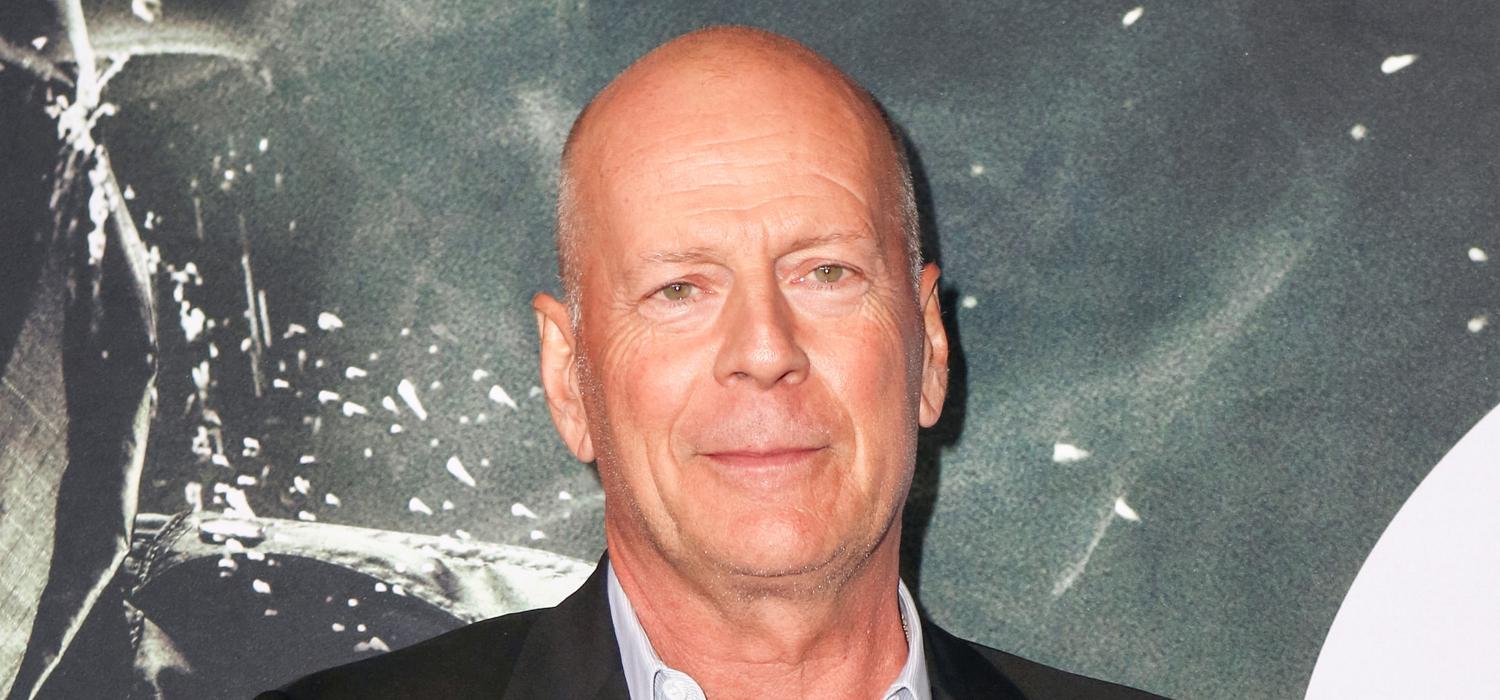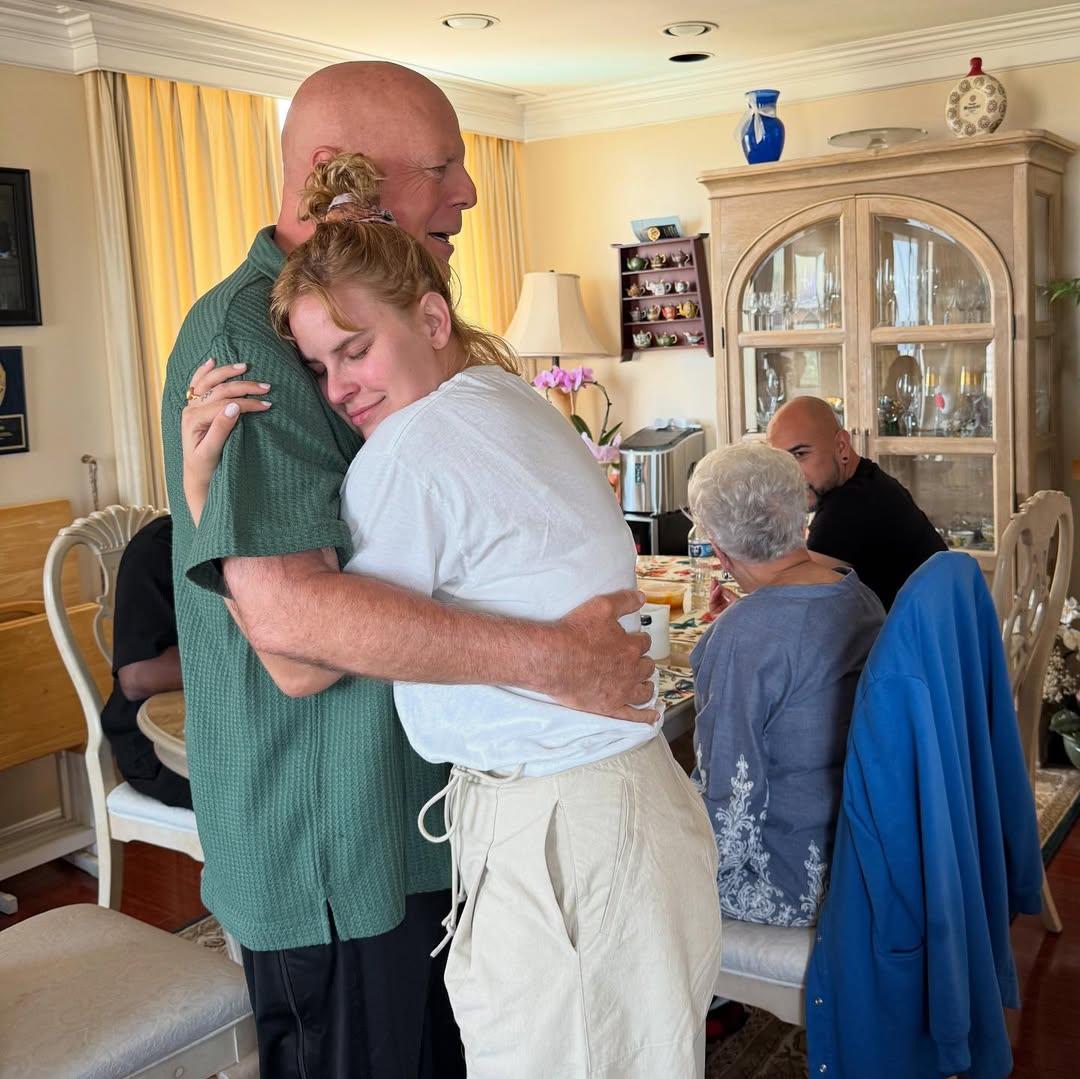Bruce Willis’ Fragile Return To Public View Stuns Hollywood
By Chukwudi Onyewuchi on November 7, 2025 at 9:45 AM EST

After months out of the public eye, Bruce Willis was spotted during a rare outing in Los Angeles, marking a bittersweet moment for fans and loved ones.
The 70-year-old actor, who has been battling frontotemporal dementia, appeared frail but managed to smile as he held his carer’s hand during a gentle walk by the beach.
A Heartbreaking Glimpse Of Bruce Willis’ Health Battle

The "Die Hard" icon, who retired from acting in 2022 due to his deteriorating health, was photographed holding his caregiver’s hand while walking along a beachfront path in Los Angeles.
At a point in the pictures obtained by the Daily Mail, Willis reached for the railing for support, showing the toll his illness has taken.
Despite his visible frailty, he appeared to enjoy the fresh air and the calm surroundings, even flashing a faint smile.
His rare public appearance came a day after his ex-wife, Demi Moore, attended a star-studded charity event held in his honor in New York City.
Willis did not attend the benefit, underscoring how much his condition has affected his once-active lifestyle.
Since his diagnosis, the actor has mostly stayed away from the spotlight, living quietly under full-time care.
In 2023, Willis’s family revealed that he had been diagnosed with frontotemporal dementia (FTD), a progressive condition that affects language and behavior.
His family has since spoken openly about the challenges of caring for him and the emotional strain the disease has placed on their lives.
Willis Finds Comfort In Simplicity

During his beachside stroll, Bruce Willis opted for a relaxed look, wearing a dark grey T-shirt, khaki pants, and grey sneakers, with a blue baseball cap and black sunglasses shielding him from the sun.
The actor and his carer later paused to take in the ocean view, sharing a quiet conversation.
His wife, Emma Heming Willis, has been candid about their journey. In an interview with Diane Sawyer in August, she explained that Willis now lives in a separate one-story home near their primary residence, where a 24/7 care team supports him.
The arrangement, she said, has allowed him to have more independence while receiving constant attention from professionals.
Willis shares two young daughters, Mabel, 13, and Evelyn, 11, with Emma, as well as three older daughters, Rumer, 37, Scout, 34, and Tallulah, 31, with his ex-wife, Demi Moore.
The blended family has maintained a united front as they support the actor through his illness.
However, insiders recently told the Daily Mail that “he is going downhill fast,” a somber reminder of the relentless nature of FTD.
Bruce Willis’ Family Opens Up About The Pain Behind The Smiles

Emma Heming Willis has been open about how their daughters are coping with their father’s decline.
“I think they're doing well, all things considered, but it's hard,” she told Vogue Australia in October. “They grieve, they miss their dad so much. He's missing important milestones, that's tough for them - but kids are resilient, [although] I used to hate hearing that because people didn't understand what we were walking through.”
She continued, “I don't know if my kids will ever bounce back, but they're learning and so am I.”
Her honesty has resonated with fans who admire the family’s resilience.
As Willis's condition worsens, Emma has taken on the immense responsibility of managing not only his care but also his estate, which is estimated to be worth around $250 million.
A family source shared that “taking care of Bruce isn't just about keeping up his spirits and making sure he can physically get through the day. It also involves looking after the massive fortune he accrued as an A-list movie star.”
Inside The Difficult Decisions Facing Bruce Willis’ Wife

Emma has spoken about the emotional toll of moving her husband into a separate home for his care.
“It was one of the hardest decisions I ever had to make,” she told The Sunday Times.
Yet she believes it was necessary for both his well-being and their family’s stability.
Emma shared, “But among the sadness and discomfort, it was the right move for him, for our girls, for me. Ultimately, I could get back to being his wife. And that's such a gift.”
She added that the move has given Willis a sense of freedom and allowed more friends and family to spend time with him comfortably.
“It's made such a difference for more friends and family to have their own experience with him without it being my home, without me hovering, or my anxiety of how to manage the guest and their expectations, and then have to see their reactions - their sadness at what is.”
This change has also brought peace to Emma, who continues to navigate the emotional challenges of caregiving.
Despite the heartache, she has expressed gratitude for the support of those around her.
Finding Strength Amid A Silent Struggle
View this post on Instagram
The Willis family’s transparency has shed light on the devastating impact of frontotemporal dementia.
The illness targets areas of the brain responsible for judgment, impulse control, and decision-making, often leading to changes in personality and behavior before memory loss sets in.
For caregivers, the emotional and physical burden can be overwhelming.
Emma recently revealed a sobering warning from her husband’s neurologist.
“About 30 percent of caregivers die before their loved ones,” she said during a conversation on the "HealSquad" podcast with Maria Menounos. “We are making appointments for everyone, handling, doing this. We are doing so much.”
She emphasized the importance of self-care, adding, “Caregivers need to know that to make it sustainable, you must care for yourself, that it is not selfish, it is self-preserving.”
Her reflection came after learning that nearly 40 percent of caregivers neglect their own medical care due to the demands of looking after loved ones.
Chronic stress, she said, can trigger inflammation, high blood pressure, and even increase the risk of a heart attack.
“I really needed to hear that to wake up,” she admitted, calling it a turning point in how she approaches her husband’s care.